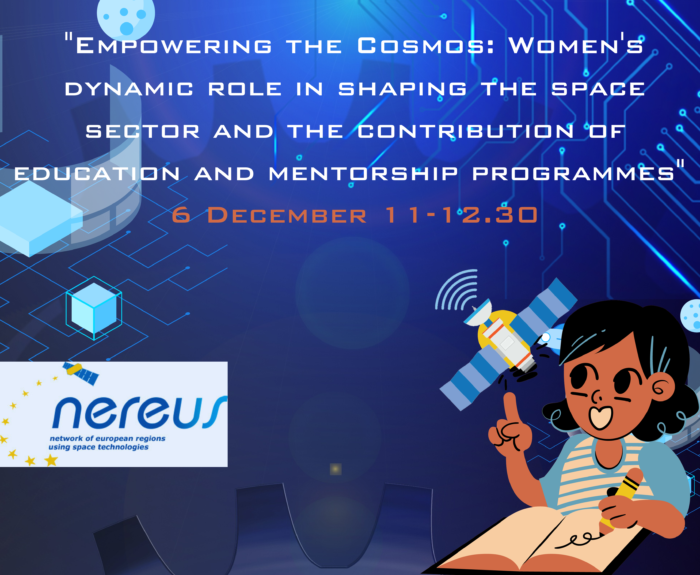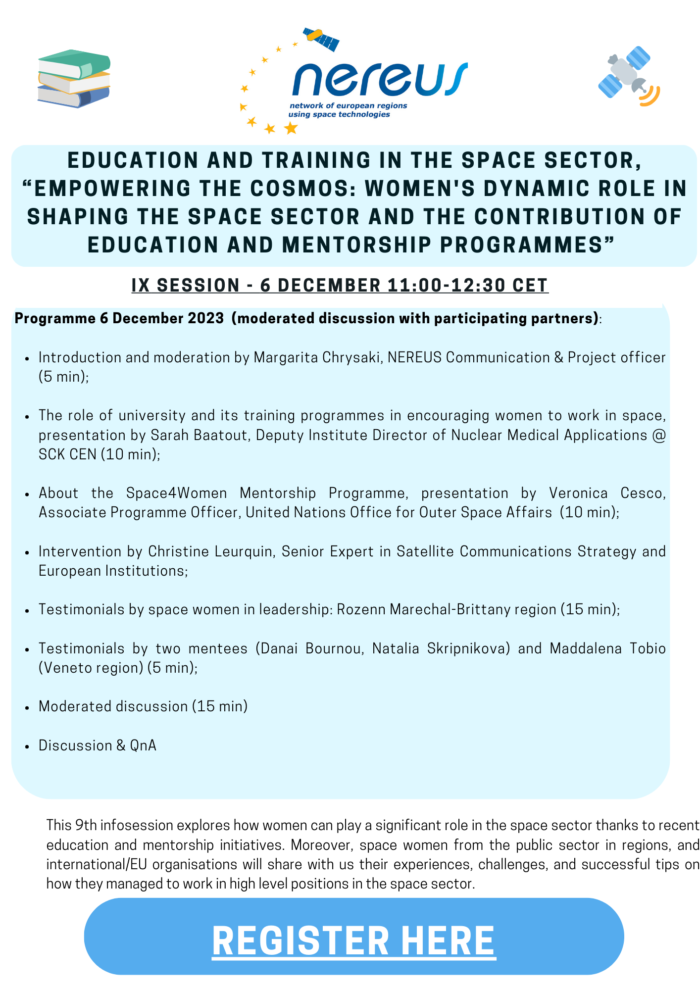This 9th infosession explores how women can play a significant role in the space sector thanks to recent education and mentorship initiatives. Moreover, space women from the public sector in regions, and international/EU organisations will share with us their experiences, challenges, and successful tips on how they managed to work in high level positions in the space sector.

The education/training webinars have the objective of bringing together the university community and partners of the network interested in education/training, capacity-building, and skills development, creating new opportunities for partnerships and setting the frame for new ways of cooperation within and outside NEREUS.

Target group: Universities/research centres that are NEREUS-Associate members, universities based in NEREUS-member regions, other Universities interested in education/training, cooperation partners, NEREUS-regions that hosted the EO4GEO workshops in the past, and all NEREUS-members interested in the education/training regarding the use of space technologies;
Background:
The role of the education/training sector is crucial for the development of the regional economy and growth. New skills and interdisciplinary knowledge are needed given the numerous challenges such as unemployment, digitalisation, and green transition. The growing role of the space sector can provide solutions to a wide range of regional domains including agriculture, maritime activities, urban planning, air quality, climate adaptation, and sustainable development.
This info session will introduce key education players in the area of space and explore potential partnerships within but also outside the Network. In addition, it will present new education/training trends on the uptake and integration of space/geospatial data and services.
Education/training is also considered a key topic for regional strategies and future needs in space products, as experts are needed for the public and private sector at local and regional level. NEREUS is a European network of regions, currently composed of 24 Member regions and 33 Associate members (including universities) and its role is also to update members and participate in the development of an appropriate educational framework that will support regional growth and development.

